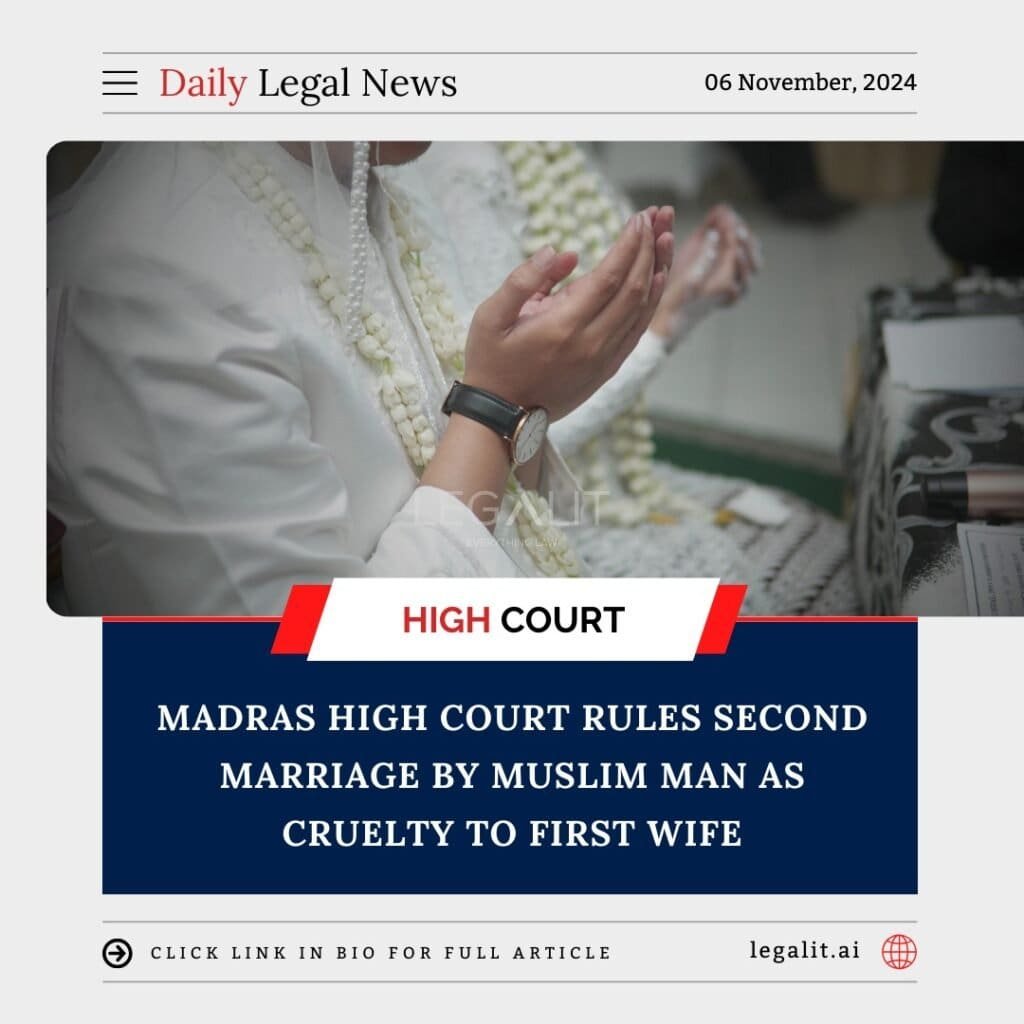
In a recent ruling, the Madras High Court held that a Muslim man entering into a second marriage without the consent of his first wife amounts to cruelty. The court’s judgment emphasized the mental and emotional strain caused to the first wife, particularly when her husband’s actions were not in line with marital responsibilities or mutual consent.
Background:
The case involved a Muslim man who had remarried while still legally married to his first wife, without informing her or seeking her consent. The first wife filed a petition claiming that her husband’s decision to marry again was not only a violation of their marital bond but also inflicted emotional distress, violating her rights under the Domestic Violence Act.
Court’s Rationale:
The Madras High Court reasoned that while the personal law of Muslims permits polygamy under certain conditions, the manner in which it is practiced must be sensitive to the rights and well-being of the first wife. The court recognized the first wife’s emotional suffering and labeled the husband’s second marriage as an act of cruelty, which could be grounds for divorce.
Existing Measures:
While polygamy is permitted under Islamic law, the court stressed that it should not be exercised in a manner that inflicts undue hardship on the first wife. The judgment highlights that emotional abuse and cruelty in marriage, particularly in such cases, must be addressed to protect the rights of women.
Conclusion:
This ruling underlines the need for sensitivity and fairness in marital relationships, even within the confines of personal laws. It sets a precedent for addressing the emotional harm caused by unilateral decisions in marriages and strengthens the rights of women in such situations. Future cases involving similar issues may see courts upholding this interpretation of cruelty in marital law.